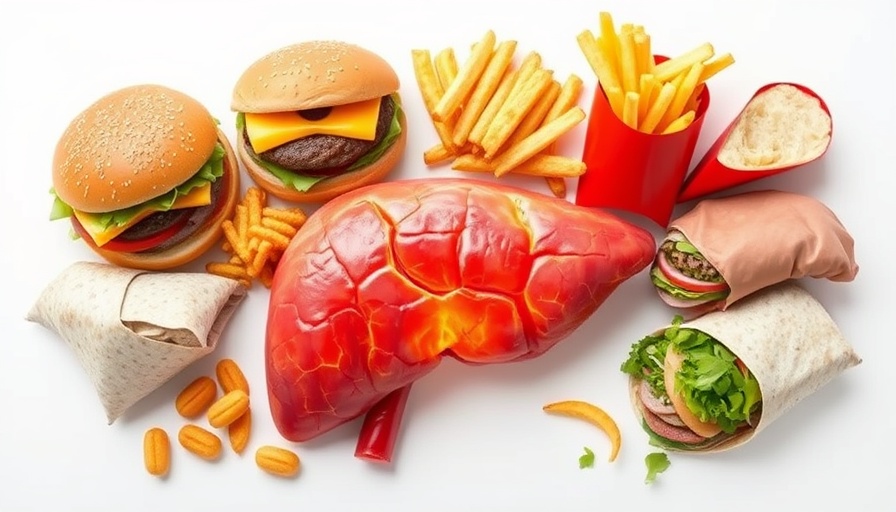
Understanding the Liver Epidemic in America
Recent studies estimate that Non-Alcoholic Fatty Liver Disease (NAFLD), now officially known as Metabolic Dysfunction-Associated Steatotic Liver Disease (MASLD), may affect as many as one in three adults in the United States. This silent epidemic often goes unnoticed until health complications arise, yet it is largely preventable. The disease is closely linked to our modern diet, particularly the rise in ultra-processed foods (UPFs), which make up almost 60% of the typical American diet. This alarming statistic sheds light on how dietary choices are fundamentally reshaping public health.
The Role of Ultra-Processed Foods
UPFs include a range of products such as prepared meals, sugary drinks, and packaged snacks—items that have been engineered for convenience and taste rather than nutritional value. These foods are often high in unhealthy fats, sugars, and salt while being low in essential nutrients. The rise in consumption of UPFs correlates with increasing rates of obesity and related metabolic disorders, leading to issues such as MASLD and other liver-related diseases.
How Lifestyle Choices Impact Liver Health
The connection between modern food and liver health cannot be overstated. Poor dietary habits, paired with sedentary lifestyles, create a perfect storm for the onset of MASLD. Many individuals remain unaware of their liver health as the symptoms may take years to manifest. Addressing this issue through education on nutrition and lifestyle changes can drastically change the trajectory of many lives.
The National Health Response: A Need for Change
To combat this burgeoning health crisis, systemic change is necessary. Advocacy for an end to subsidies that support UPFs and stricter regulations on their marketing—especially to children—could pave the way for healthier communities. Investment in nutritional education and improved access to whole foods is vital for ensuring that all individuals, regardless of socioeconomic status, have the chance to improve their health.
Community Involvement: Your Role in Combating MASLD
As individuals and communities, we can take proactive steps to fight the liver epidemic. Supporting local farmer’s markets, advocating for school nutrition programs, and participating in community health initiatives can help shift the narrative around food. By becoming educated on the impacts of diet on health and actively choosing whole foods over UPFs, residents in Massachusetts and beyond can lead the way in making a meaningful difference.
Conclusion: A Call to Action for Health and Wellbeing
Unfortunately, the name change from NAFLD to MASLD may not spark the necessary public awareness about this disease. We must elevate our conversations around liver health and understanding how diet impacts our bodies. Investing in better nutrition and advocating for healthier food systems can combat this silent epidemic. Let us work collectively to foster a culture of wellness where everyone understands the value of nutrition in maintaining liver health.
 Add Row
Add Row  Add
Add 




Write A Comment